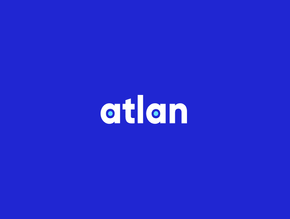Accelerating human-centric AI with Uzi Dvir, CIO at WalkMe

The year 2023 has seen groundbreaking impact caused by AI technologies. However, there has been much discussion throughout the global business landscape about ‘developing for the sake of developing’ and questions over how AI - if not harnessed efficiently - is going to affect workforces.
Uzi Dvir, CIO at WalkMe, states that moving forward, businesses will realise that digital investments must be human-centric, otherwise they will fail. He expects 2024 to be a year of organisations putting less focus on the technology itself and more on the people it serves. His belief is that enterprise use of AI will ensure that the technology is more efficient for human employees.
“Human-centric” AI and the significance of digital adoption platforms
Dvir says: “It goes without saying that the technology matters – apps need to work, and operating systems need to be secure – but if employees do not use their software, and unlock the intended benefits, then businesses have failed. This means ‘digital adoption’ is becoming an increasingly important piece of the puzzle.
“Businesses will place more of a priority on making sure the tech stack makes sense from an employee’s point of view. They will find a more intuitive approach, helping workers carry out their duties without needing a drawer full of instruction manuals on how hundreds of different pieces of software work, or spending endless hours in training sessions learning how to use tools that will never be relevant to their role.
“Becoming more human-centric will enable employees to get on with the task at hand, and ultimately drive productivity across the business.”
Addressing generative AI solutions, which are currently having transformative effects on businesses, Dvir says that 2024 should see generative AI solutions being used across tech stacks to “enhance business process flows across departments and workflows.”
He says: “We are likely to see more holistic solutions with generative AI this coming year. Digital Adoption Platforms (DAPs), which provide customised user guidance and automation with actionable data insights, will play a key role in both understanding how individuals are using generative AI solutions within organisations as well as empowering the safe use of these technologies to fully enjoy the productivity gains they promise.”
The balancing act between AI safeguarding in line with investments
Investment into AI and other types of technologies are increasing, particularly within business development. A McKinsey report from earlier in 2023 stated that 60% of companies are using generative AI in 2023 - a figure that is only expected to rise, according to WalkMe.
The company expects that inaccuracies and cybersecurity will continue to be two of the largest risks with generative AI moving into 2024, with businesses having to work hard to improve their technology postures.
Dvir says: “AI brings perhaps the largest growth potential of any category today, and also some of the largest risks. Companies will invest in both seizing the AI advantage while proactively mitigating and addressing its risk factors.
“As generative AI finds its place in the workplace, employers are investing in the guidelines, risk mitigation technologies and parameters when it comes to securing company information from “unknown unknown” risk factors.”
When considering ethical use cases of AI, WalkMe predicts that the US government will continue to partner with businesses to ensure that they maintain a competitive advantage - whilst mitigating risks.
In October 2023, US president Joe Biden released an executive order to large technology companies to enable AI it deems as safe, secure and trustworthy. WalkMe anticipates historic government action in 2024 as AI becomes more critical to economic and national security.
Dvir anticipates the US government will continue to develop “guidelines and regulatory frameworks for AI, while prioritising national and economic security.”
He says: “All people stand to benefit from a more responsible approach to the fast-paced innovation associated with AI. If not safeguarded from malicious actors and unintentional malicious uses, AI can pose an existential threat.
“The private and public sectors in the US and worldwide recognize these challenges. Individual companies will have to take the responsibility of complying with these standards or risk security concerns or falling behind from lack of utilisation of cutting-edge technology.”
Will AI replace the human workforce in 2024?
Dvir states that, whilst AI may not replace human workforces in 2024, those with a lack of knowledge or understanding of these technologies may be “displaced” by those who do.
“Technology vendors promised that generative AI would drastically increase productivity, but we did not see this live up to the hype in 2023,” he says.
“Reasons for AI-fuelled productivity underperforming expectations include adoption barriers, including lack of training, and lack of institutional knowledge by companies new to AI technologies.
“In 2024, we are likely to see generative AI-driven chatbots, virtual assistants, and automation tools become more sophisticated and capable, as well as more integrated into the global economy.
He continues: “Employees who are more capable of using AI tools are likely to outcompete peers with less technology literacy. Because of this, organisations will be tasked with addressing the growing gaps in their workforce performance, accelerated by the outsize contribution of AI technologies.”
Helping businesses achieve technological goals
Ultimately, businesses are aiming for hyperproductivity with AI technologies, aiming to optimise resources and accelerate decision-making. Highly regulated businesses like banking and healthcare will need assistance in adapting business processes to be AI-driven.
Dvir says: “In this new market, IT partners will become critical in helping businesses achieve these goals and will act as consultants or service providers specifically on this type of transformation. More employees will be able to achieve hyperproductivity, first with data-driven analytics and insights enabled by AI tools.
“With the rise of hyperproductivity, enterprises will unlock new possibilities - comparable with the advent of technologies like electricity and the incandescent light bulb that enabled industrialising economies to rapidly increase their GDP and output.
“Enterprises that foster hyperproductivity will outperform their peers, leading to a race for data insights and tools that empower workforces to operate at a previously impossible level of output. There’s likely to be a renewed investor focus on how companies are enabling AI-powered hyperproductivity, and companies that get these factors right are likely to outshine their competitors and attract more investors.”
******
For more insights into the world of AI - check out the latest edition of AI Magazine and be sure to follow us on LinkedIn & Twitter.
Other magazines that may be of interest - Technology Magazine | Cyber Magazine.
Please also check out our upcoming event - Sustainability LIVE Net Zero on 6 and 7 March 2024.
******
BizClik is a global provider of B2B digital media platforms that cover Executive Communities for CEOs, CFOs, CMOs, Sustainability leaders, Procurement & Supply Chain leaders, Technology & AI leaders, Cyber leaders, FinTech & InsurTech leaders as well as covering industries such as Manufacturing, Mining, Energy, EV, Construction, Healthcare and Food.
BizClik – based in London, Dubai, and New York – offers services such as content creation, advertising & sponsorship solutions, webinars & events.
- CoreWeave Adds to UK's AI Ecosphere with £1bn InvestmentCloud & Infrastructure
- AlphaFold 3: Google DeepMind Seeks to Transform HealthcareAI Applications
- The Startup That Secured Europe’s Biggest-Ever AI InvestmentTechnology
- Democratising Data: Atlan Reaches US$750m ValuationData & Analytics






